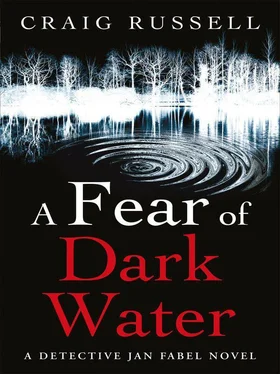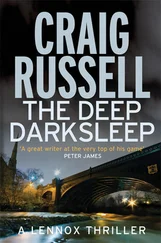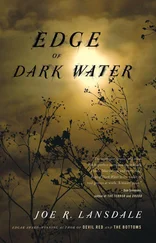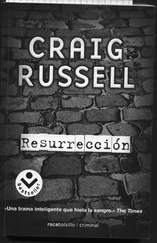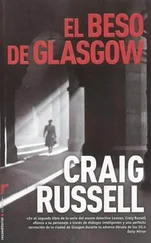Craig Russell - A fear of dark water
Здесь есть возможность читать онлайн «Craig Russell - A fear of dark water» весь текст электронной книги совершенно бесплатно (целиком полную версию без сокращений). В некоторых случаях можно слушать аудио, скачать через торрент в формате fb2 и присутствует краткое содержание. Жанр: Триллер, на английском языке. Описание произведения, (предисловие) а так же отзывы посетителей доступны на портале библиотеки ЛибКат.
- Название:A fear of dark water
- Автор:
- Жанр:
- Год:неизвестен
- ISBN:нет данных
- Рейтинг книги:5 / 5. Голосов: 1
-
Избранное:Добавить в избранное
- Отзывы:
-
Ваша оценка:
- 100
- 1
- 2
- 3
- 4
- 5
A fear of dark water: краткое содержание, описание и аннотация
Предлагаем к чтению аннотацию, описание, краткое содержание или предисловие (зависит от того, что написал сам автор книги «A fear of dark water»). Если вы не нашли необходимую информацию о книге — напишите в комментариях, мы постараемся отыскать её.
A fear of dark water — читать онлайн бесплатно полную книгу (весь текст) целиком
Ниже представлен текст книги, разбитый по страницам. Система сохранения места последней прочитанной страницы, позволяет с удобством читать онлайн бесплатно книгу «A fear of dark water», без необходимости каждый раз заново искать на чём Вы остановились. Поставьте закладку, и сможете в любой момент перейти на страницу, на которой закончили чтение.
Интервал:
Закладка:
‘The one thing we have to bear in mind about this environment is that, like I said at the start, none of the rules we’ve learnt over the years apply here. This is a place where anyone can be anybody or anything they want to be. Even if we find the face of the person our victims agreed to meet, it’s almost certain it isn’t the face he has in real life.’
‘What about forensics? There’s nothing more real-world than being raped and strangled. Don’t we have DNA from semen, hair or skin he’s left on the victims?’ asked Dirk Hechtner, a small, dark-haired detective who hadn’t been on Fabel’s team long.
Fabel shook his head. ‘Our guy is fastidious. He wears a condom and we think he may have shaved his pubic region. To date we haven’t found a single trace of non-victim DNA. His dumping the bodies in water works against us forensically, too.’
‘So where do we start?’ asked Werner Meyer.
‘This is a good point at which to introduce Chief Commissar Kroeger, here…’ Fabel indicated the man who sat at the far end of the table. ‘Herr Kroeger heads up the Presidium’s specialist information-technology team. Herr Kroeger?’
Kroeger nodded his long bony head. ‘As Principal Chief Commissar Fabel has pointed out, information technology has, in law-enforcement terms, presented as many challenges as it has opportunities. One of the biggest problems we face is those who exploit and abuse children. And, unfortunately, it has been in this area of offending that we have had to go through a steep learning curve; because it has been this group of offenders who were first to recognise the advantages the internet offered them. It changed the whole way they found and trapped victims, exchanged images of abuse and, most of all, developed a way of communicating with each other and exchanging information without exposing their identities. At one time, before the internet, these people acted alone and were generally isolated. On a very few occasions they would encounter like-minded individuals, more often than not meeting them in prison. Occasionally, in the pre-internet world, you would get an organised paedophile ring. But communication, far less collaboration, was reasonably rare; and when it did occur, it was within a specific geographical area. The internet changed that. All of a sudden these people could, for the first time ever, gain a sense of community. They were no longer isolated from each other and could exchange information and images, across the country and across the entire world. They could persuade each other that, because there were so many others who shared their perversions, then they weren’t perversions. That their behaviour wasn’t aberrant, sick, twisted.’ Kroeger paused. Fabel had noticed that the internet-crime specialist’s long thin face remained impassive, the bony angles lacking animation, as he spoke. The grey eyes stayed dull and sluggish. Maybe, thought Fabel, that was what happened when you worked with technology, with machines all the time: maybe you became less vital, less human.
‘That’s what the internet can do: offer an environment of normality for the sickest and most twisted minds,’ continued Kroeger. ‘The most important thing about the internet is that it gives these people a sense of security, of impunity. And that’s where we come in. There is no such thing as anonymity on the internet. Herr Fabel drew a comparison with real-world investigations: where you can track an offender across an environment, interview eyewitnesses, etc. The truth is that it’s wrong to think the internet is any different. It’s just that it’s a virtual world instead of a physical one. You still leave tracks everywhere you go. And no matter how hard you try to disguise yourself as somebody else, there are always clues to your identity left behind.’
‘How can that be?’ asked Fabel. ‘If someone claims to be a fourteen-year-old girl instead of the forty-year-old man that they really are, how can you see through that?’
‘Okay, let’s start with the basics. A lot of browsers offer private browsing, where nothing is logged in your internet history and your computer doesn’t pick up cookies or other traces of your excursions on the net. The truth is there is no such thing as private browsing. Your internet provider keeps a record of every site, every page you visit. And the administrators of those sites you visit similarly store your IP address. Every time you connect to the internet, you leave a trace. And if you’re dumb enough to use a computer at work or at home, then we’re just one court order away from having your name and address.’
‘But our guy isn’t dumb,’ said Anna.
‘No…’ Kroeger reached into his pocket and produced a USB stick. ‘This is a dongle. This particular type of dongle allows you to access any WiFi spot. Obviously, you still have an IP address, but if you have paid cash for a pay-as-you-go broadband dongle, then your name and address aren’t listed anywhere. My guess is that your Network Killer, if he’s smart, is using one of these. But even if he is, he’s still traceable. Whenever he is online he can’t disguise his location. Or at least he can’t without some pretty sophisticated software. We can identify the general physical location of the connection. If it’s a pay-as-you-go dongle, then he has to top it up somewhere. And that means resurfacing in the real world. The person behind the counter in the newsagent or mobile-phone store who sells him the credits is the witness that Herr Fabel talked about earlier. My point is this. My beat isn’t that dissimilar to yours. There are always tracks left behind, always something to follow. How much effort has been made, and how much skill has been employed in covering up those tracks depends on the intelligence and expertise of the offender. Just like in the real world.’
‘But that still doesn’t answer the question about how to see through a fake identity,’ said Werner.
‘I don’t know how many of you are members of a social networking site, but those of you who are will be aware of the rather disturbing phenomenon of seeing ads for things that are particularly relevant to you, right at the exact time they’re relevant to you… ads for wedding photographers just after you’ve become engaged, a restaurant ad just before an anniversary, sports stores offering you deals in your particular sport… It’s like there’s some kind of cyberpsychic reading your mind. The truth is that you have left so many details of yourself scattered all around. Because you think in terms of normal space, you think that all of these little scraps of information are so scattered that they can’t be put together. They can, and instantaneously. And you’re not even aware of having left some of that information behind: your personal data and browsing behaviour have been analysed, sometimes automatically. Nothing you do is random in the internet. You think it is — you think you jump from one site to another, from one page to another spontaneously, impulsively — but there is always an underlying logic or psychology to everything you do. The truth is that the more relaxed and free-roaming your internet exploration is, the more it reveals about your psychology, your identity. In the Cybercrime Unit we have access to all kinds of experts — IT specialists, sociologists, psychologists, criminologists. We even use linguistic experts who can analyse your vocabulary, your syntax and grammar, and who can profile your educational standards, age, etc. And, as well as the experts, we have analytical software that can give us a breakdown of a user in seconds. So, to answer your question, Herr Meyer: yes, it can be difficult to see through a carefully constructed avatar identity on the web, but we do have an armoury of weapons at our disposal and it’s much more difficult to hide behind an invented identity than you would think.’
Читать дальшеИнтервал:
Закладка:
Похожие книги на «A fear of dark water»
Представляем Вашему вниманию похожие книги на «A fear of dark water» списком для выбора. Мы отобрали схожую по названию и смыслу литературу в надежде предоставить читателям больше вариантов отыскать новые, интересные, ещё непрочитанные произведения.
Обсуждение, отзывы о книге «A fear of dark water» и просто собственные мнения читателей. Оставьте ваши комментарии, напишите, что Вы думаете о произведении, его смысле или главных героях. Укажите что конкретно понравилось, а что нет, и почему Вы так считаете.
